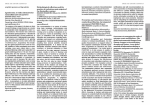Requier-Desjardins M., Cornet A. (2013). Methodological reflections and the practice of evaluation, main outputs of the Montpellier seminar. In : UNCCD (Bonn, Allemagne). Economic assessment of desertification, sustainable land management and resilience of arid, semi-arid and dry sub-humid areas: programme and short abstracts.
Bonn (Allemagne) : UNCCD.
p. 138-139.
2. UNCCD Scientific Conference: Economic Assessment of Desertification, Sustainable Land Management and Resilience of Arid, Semi-Arid and Dry Sub-Humid Areas, 2013/04/09-12, Bonn (Allemagne). Communication orale : résumé. Session: Assessing actions to combat desertification, what valuations.
http://www.iamm.ciheam.org/ress_doc/opac_css/index.php?lvl=notice_display&id=36971
http://www.iamm.ciheam.org/ress_doc/opac_css/index.php?lvl=notice_display&id=36971
| Titre : | Methodological reflections and the practice of evaluation, main outputs of the Montpellier seminar |
| in : | |
| Auteurs : | M. Requier-Desjardins ; A. Cornet |
| Type de document : | Communication à un Congrès (avec Actes) |
| Année de publication : | 2013 |
| Format : | p. 138-139 |
| Note générale : | Communication orale : résumé. Session: Assessing actions to combat desertification, what valuations |
| Langues : | Anglais |
| Langues du résumé : | Anglais |
| Catégories : |
Catégories principales 05 - DEVELOPPEMENT RURAL ; 5.1 - DéveloppementThésaurus IAMM DEVELOPPEMENT DURABLE ; DURABILITE ; CONSERVATION DES RESSOURCES ; GESTION DES RESSOURCES ; METHODE ; ETUDE DE CAS ; DESERTIFICATION ; LUTTE CONTRE LA DESERTIFICATION ; EVALUATION |
| Résumé : | The communication is a review of evaluations main meanings, methodologies and uses, based on various experiences and coming out of a variety of disciplines in social sciences. It aims at presenting a set of types of evaluations and discussing their strengths and weaknesses regarding methodologies and impacts on sustainable land management. It relies on concrete examples resulting from several scientific research programmes/projects/. It is based on the Montpellier seminars analyses and outputs. Economic or financial evaluation is often presented as the major approach because it gives results in terms of financial and economic return of actions to combat desertification. However, economic evaluation implies comparing two situations, one with the action, and the control situation through time, but this can only be done through heavy protocols of experimentation. External factors in the analysis can change the meaning of the results comparing both situations. From a purely natural resources management perspective, evaluation implies first elaborating a relevant environmental baseline as a condition for assessing an action. This approach(if it’s the natural resource management perspective ?) enlightens ore the socio-political context of projects, policies and programmes and help to guide their implementation. A last category of evaluation puts the local actors at the heart of the evaluation process. Then evaluation can be presented as a direct tool for enhancing local development and not just as a tool for funding and implementing bodies to report on their activities or to elaborate further policies and projects. It is strongly linked to local actors’ organization and capacity building for land planning in a context of decentralization of the management of natural resources. |
| Congrès : | 2. UNCCD Scientific Conference: Economic Assessment of Desertification, Sustainable Land Management and Resilience of Arid, Semi-Arid and Dry Sub-Humid Areas, 2013/04/09-12, Bonn (Allemagne) |
| Cote : | En ligne |
| URL / DOI : | http://www.iamm.ciheam.org/ress_doc/opac_css/index.php?lvl=notice_display&id=36971 |
Documents numériques (1)
PROD1621_2.pdf Adobe Acrobat PDF |







